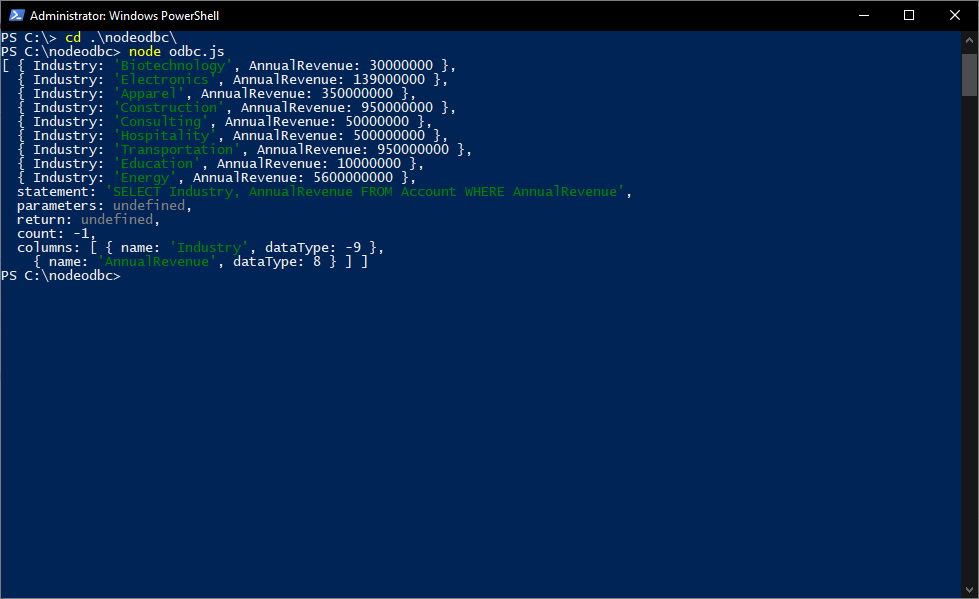Discover how a bimodal integration strategy can address the major data management challenges facing your organization today.
Get the Report →Query Redshift Data through ODBC in Node.js
Use node-odbc to execute SQL queries against Redshift data from Node.js.
Node.js is a JavaScript runtime environment that allows you to run JavaScript code outside of a browser. With the CData ODBC Driver for Amazon Redshift, you can access live Redshift data from Node.js apps and scripts. In this article, we walk through installing node-odbc and the required tools to create a simple Node.js app with access to live Redshift data.
With built-in optimized data processing, the CData ODBC Driver offers unmatched performance for interacting with live Redshift data in Node.js. When you issue complex SQL queries from Node.js to Redshift, the driver pushes supported SQL operations, like filters and aggregations, directly to Redshift and utilizes the embedded SQL engine to process unsupported operations client-side (often SQL functions and JOIN operations).
Connecting to Redshift Data
If you have not already done so, provide values for the required connection properties in the data source name (DSN). You can use the built-in Microsoft ODBC Data Source Administrator to configure the DSN. This is also the last step of the driver installation. See the "Getting Started" chapter in the help documentation for a guide to using the Microsoft ODBC Data Source Administrator to create and configure a DSN.
To connect to Redshift, set the following:
- Server: Set this to the host name or IP address of the cluster hosting the Database you want to connect to.
- Port: Set this to the port of the cluster.
- Database: Set this to the name of the database. Or, leave this blank to use the default database of the authenticated user.
- User: Set this to the username you want to use to authenticate to the Server.
- Password: Set this to the password you want to use to authenticate to the Server.
You can obtain the Server and Port values in the AWS Management Console:
- Open the Amazon Redshift console (http://console.aws.amazon.com/redshift).
- On the Clusters page, click the name of the cluster.
- On the Configuration tab for the cluster, copy the cluster URL from the connection strings displayed.
Building node-odbc
In order to connect to Redshift through the CData ODBC Driver, you need to build node-odbc manually (after installing the required tools).
Installing the Required Tools
The following commands install the tools required to build node-odbc (note the -g parameter, which installs the tools globally).
npm i -g windows-build-tools npm i -g node-gyp
Building node-odbc
After installing the required tools, create a directory for the Node.js app and install odbc (which builds the binary for us to use in our Node.js script).
mkdir nodeodbc cd nodeodbc npm i -g node
Querying Redshift from Node.js
With the ODBC Driver installed, a DSN Configured, and node-odbc built, we are ready to query live Redshift data from a Node.js app. The sample code below connects to a specific DSN and queries the Orders table.
myscript.js
const odbc = require('odbc');
async function queryRedshift() {
const connection = await odbc.connect(`DSN=CData Redshift Source`);
const data = await connection.query('SELECT ShipName, ShipCity FROM Orders');
console.log(data);
}
queryRedshift();
Once you write the app, use node to execute the script:
node myscript.js

Download a free, 30-day trial of the CData ODBC Driver for Amazon Redshift and start working with your live Redshift data in Node.js. Reach out to our Support Team if you have any questions.






